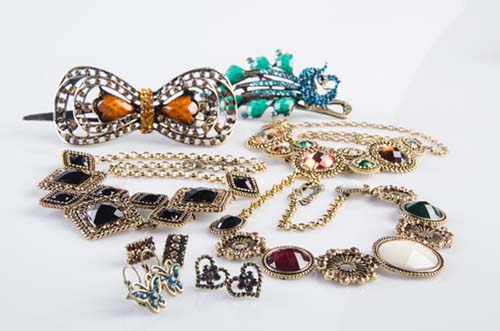These days, our homes seems to be full of more belongings than ever before. Family photos, memorabilia, and collections of heirlooms, glassware, and LP albums can threaten to take over all your available storage space.
To keep these items under control, your camera is your secret weapon. Keep it at the ready to snap photos of your treasured items. Taking photos of your mementos allows you to document and inventory what you have, and provides you with a choice: to keep the item (which takes up more space) or just keep the photo (which takes up less space).
Among the items many people feel overwhelmed by are kids’ artwork, photos and precious heirlooms. Here are some strategies for handling these common memory maker dilemmas.
Kids’ artwork and school projects
Often, parents (especially moms) are more attached to their children’s creative collections than the kids are. Evidence of students’ creativity comes home from school in the form of oversized artwork with cotton balls, glitter, Popsicle sticks, and tree bark glued to paper. Storing all these works of art can be challenging.
If this is the case in your home, try this systematic approach to taming the collection.
- Give each child one “art bin.”
- Fill the bin, and at the end of the school year (or even during a holiday break), ask your child to select her favorite pieces to keep.
- After your child has selected her favorites, it’s your turn to pick your preferred pieces.
- Make a decision to keep 10 to 20 pieces of art per year and – gulp! – toss the rest.
- If it pains you to throw out the other items, your camera can help. Snap a photo of those pieces before tossing them out, and you’ll always have the memory – without the hassle of storing all that artwork.
Photos
Photo organization projects are the most thought-about, yet most procrastinated projects many people encounter. How do you tackle this assignment? Here’s one strategy.
- Before you begin your photo organizing, decide how you and your family like to view photos. Some people enjoy looking at photos on a computer or TV screen, others want a meticulously labeled photo album, and still others love dumping a box of random photos onto a table and looking at them in no particular order over afternoon coffee. Once you understand the kind of viewing experience you enjoy, then you can build the project from there.

- Whether you are organizing photos electronically or manually, define your photo categories. This helps in the sorting process, and lets you know how many albums, boxes, bins or baggies to have on hand for the project. You can organize photos chronologically, or group them by the people featured (such as friends from your book club), geographical location (your trip to Boston), or events (Halloween).
- Keep it simple. Once you have defined your categories, only sort photos into the categories you’ve created. If pictures don’t fit into your current categories, hold those pics aside and just deal with the ones you know. This will allow you to finish the project, even if it’s not perfect. You’ll need to go back to the project at another time, and you can repeat this process then.
Heirlooms
Sadly, heirlooms have become less important to us now than in the past. We live in an age that prizes new, pretty, and sparkly.
If a loved one gives you an heirloom you really don’t want, you don’t need to condemn yourself to storing the items out of guilt. Be honest with yourself about this, and then take a couple of actions to honor the person who gifted the item to you.
By simply taking a photo of the item (or you with the item), you can “bookmark the memory” and pay homage to the story behind it. The photo allows you to keep the memory alive, tell a story about the person who gave it to you, and feel like you’ve placed some importance on their precious heirloom.
Once you’ve taken these actions, the guilt often lifts, allowing you to give the item away to a good home or sell it.
Related:
